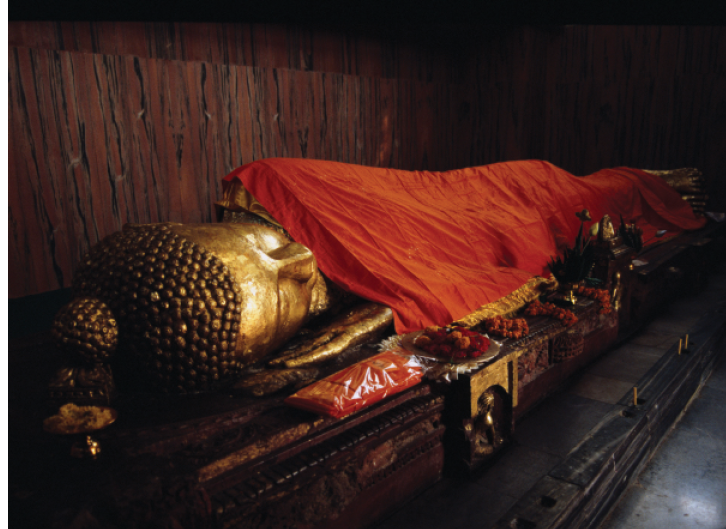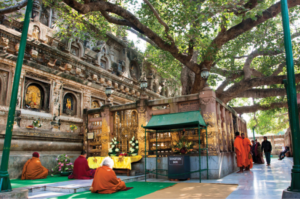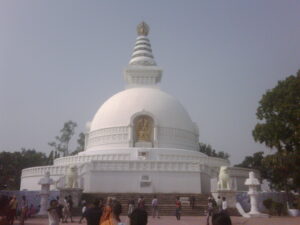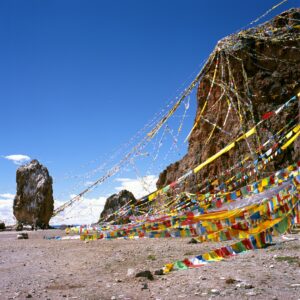The Buddha passed away at the age of 80 in Kushinagar in eastern Uttar Pradesh. The important sites in Kushinagar are the Mahapari-nibbana Temple, home to a superb 1,500-year-old red sandstone statue of the reclining Buddha, and the imposing Mahaparinibbana Stupa, which was built over the spot where the Buddha is said to have passed away under twin sal trees. The Buddha’s last words at Kushinagar were these: “All compounded things are subject to decay: strive with diligence” (Vaya dhamma sankhara; appamadena sampadetha). Pilgrims to Kushinagar walk in silence around the massive reclining statue of the Buddha to pay homage to the truth of anicca (impermanence) and cultivate a deep sense of gratitude for the Buddha and his teaching.
The Buddhist sites in India and Nepal are seemingly thriving, and yet they are continually under threat from various forces. In July 2013, an explosion of ten bombs, attributed to the Indian Mujahideen, injured five people including two Buddhist monks, and damaged new structures in the Mahabodhi Temple complex in Bodhgaya. Neither India nor Nepal are Buddhist nations today, and there is not sufficient citizen support for the protection and preservation of the sites of the Buddha’s life. In contrast to the Buddhist-majority countries of Asia, many important Buddhist sites in India and Nepal (and also Indonesia) remain largely unexcavated or unrestored; some are mere mounds of earth and piles of stone and brick. Much of the Nepalese Kapilavastu, where the Buddha spent the first 29 years of his life, for instance, has not been excavated. These concerns and the protection of the sites of the Buddha’s life in India and Nepal need greater attention and support from the growing international Buddhist community.






